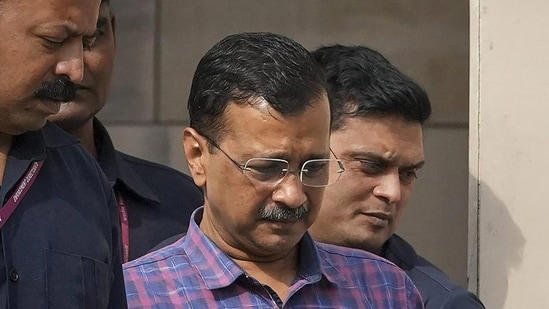The ongoing legal saga involving Arvind Kejriwal, the Chief Minister of Delhi, and the Enforcement Directorate (ED) has taken a new turn with the ED submitting an affidavit to the Supreme Court, attributing Kejriwal’s “non-cooperative attitude and conduct” as grounds for his arrest. This development adds another layer of complexity to the already contentious relationship between the Delhi government and central investigative agencies, raising questions about the balance of power, accountability, and procedural fairness within India’s democratic framework.
Arvind Kejriwal, a prominent figure in Indian politics known for his anti-corruption stance and populist appeal, has been embroiled in legal battles with various central agencies, including the ED, over allegations of financial impropriety and money laundering. The latest affidavit filed by the ED in the Supreme Court sheds light on the agency’s perspective on Kejriwal’s conduct during its investigation, alleging obstruction and non-compliance with legal proceedings.
According to the ED’s affidavit, Kejriwal’s “non-cooperative attitude” has impeded the agency’s efforts to conduct a thorough and impartial investigation into the allegations leveled against him. The affidavit highlights instances where Kejriwal allegedly failed to respond to summons, provide relevant documents, or cooperate with questioning, thereby hindering the progress of the investigation.
The ED’s assertion of Kejriwal’s non-cooperation raises important questions about the responsibilities and obligations of public officials in the face of legal scrutiny. While every individual is entitled to due process and the presumption of innocence until proven guilty, public officials, especially those holding high office, are expected to adhere to higher standards of transparency, accountability, and ethical conduct.
In the case of Arvind Kejriwal, his position as the Chief Minister of Delhi adds a layer of complexity to the legal proceedings. As a public servant entrusted with the responsibility of governing a populous and politically significant state, Kejriwal’s actions and decisions are subject to heightened scrutiny and public scrutiny. Any perception of impropriety or wrongdoing on his part not only tarnishes his own reputation but also reflects poorly on the integrity of the office he holds.
The ED’s affidavit also underscores the broader issue of political interference and institutional autonomy within India’s legal and investigative framework. The tension between the central government and state governments, particularly those led by opposition parties, often manifests in the form of allegations of selective targeting, harassment, and misuse of investigative agencies for political ends.
Critics of the ED’s actions argue that the agency’s pursuit of Kejriwal is politically motivated and aimed at stifling dissent and opposition voices. They contend that the timing of the ED’s affidavit, coming ahead of crucial state elections and against the backdrop of a contentious political climate, raises suspicions about the agency’s impartiality and independence.
On the other hand, supporters of the ED’s actions point to the need for accountability and transparency in governance, regardless of political affiliations. They argue that no individual, regardless of their position or influence, should be exempt from the scrutiny of law enforcement agencies if there are reasonable grounds to suspect wrongdoing.
As the legal battle between Arvind Kejriwal and the ED unfolds, it is essential to uphold the principles of justice, fairness, and the rule of law. Both parties must be afforded the opportunity to present their case in a transparent and impartial manner, free from external pressures or undue influence.
Moreover, the judiciary, as the custodian of constitutional values and the guardian of citizens’ rights, must ensure that the legal process is conducted in accordance with established norms and procedures, without fear or favor. The outcome of this case will not only have implications for Arvind Kejriwal and the ED but also for the broader contours of democracy, governance, and the rule of law in India.

